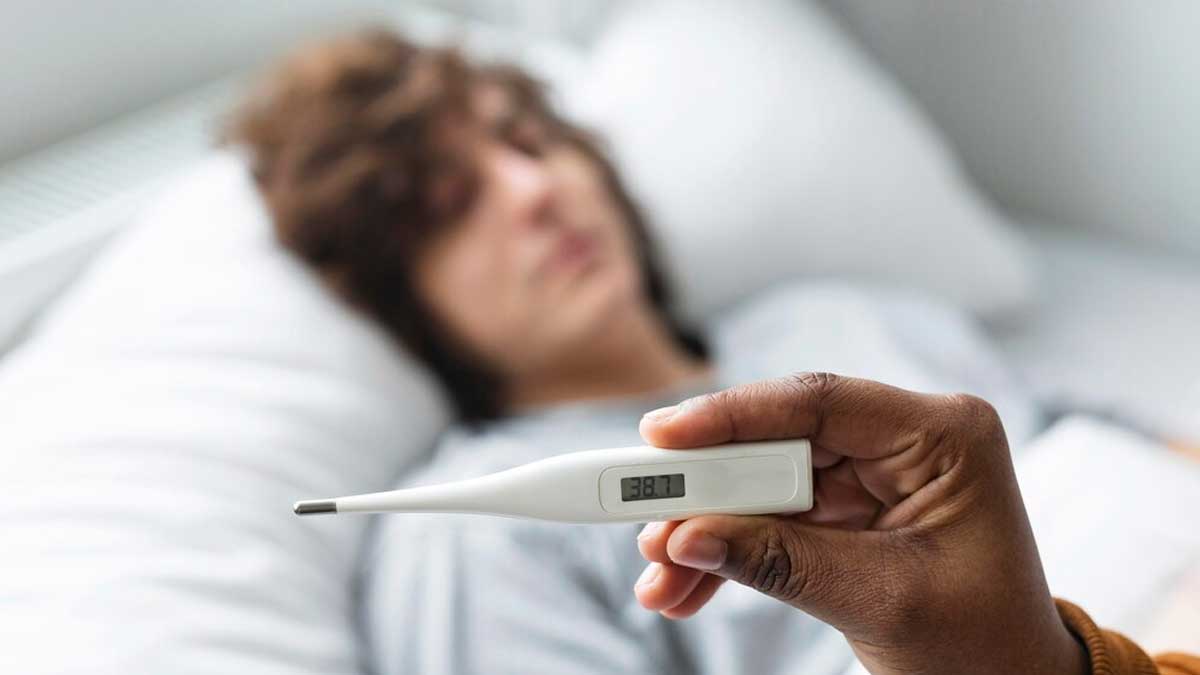
Post-viral syndrome, also known as Post-Viral Fatigue Syndrome (PVFS) or Chronic Fatigue Syndrome (CFS), is a condition characterised by persistent, unexplained fatigue and a range of other symptoms following a viral infection. These symptoms can include ongoing fatigue that is not alleviated by rest, difficulty concentrating, sleep disturbances, muscle and joint pain, and headaches.
Table of Content:-
According to an overview published in ScienceDirect, almost 200 to 2800 cases of CFS, per 100,000 people are reported worldwide. To know more about this syndrome the team of OnlyMyHealth spoke to Dr Aniket Mule, Consultant Internal Medicine, Wockhardt Hospitals, Mira Road, who shared, “Post-viral syndrome can significantly impact a person's daily life and may last for an extended period, often six months or longer.”
What Causes Post-Viral Syndrome

“The exact cause of post-viral syndrome is not fully understood, and it likely involves a complex interplay of factors,” said Dr Mule. She hypothesised that it may be because of the immune system's response to the initial viral infection, which may trigger a prolonged inflammatory state, affecting various bodily systems.
“Additionally, the virus may directly affect the central nervous system, leading to persistent symptoms,” she said, adding that other contributing factors may include genetic predisposition, hormonal imbalances, and psychological factors such as stress and trauma.
Stating that “It may not be possible to entirely prevent post-viral syndrome,” Dr Mule listed some measures that may reduce the risk and severity of symptoms:
- Early Intervention: Prompt and appropriate medical care for the initial viral infection may reduce the likelihood of complications and long-term consequences.
- Rest and Recovery: Adequate rest during and after the viral infection is essential, instead of pushing through symptoms and not allowing sufficient recovery time.
- Healthy Lifestyle: Maintain a healthy lifestyle with a balanced diet, regular exercise, and sufficient sleep.
- Stress Management: Chronic stress can weaken the immune system and exacerbate symptoms. Implementing stress management techniques can support overall health.
- Vaccination: Staying up-to-date on recommended vaccinations can reduce the risk of developing post-viral complications.
- Hygiene Practices: Adhering to good hygiene practices, such as regular handwashing, can help prevent the spread of viruses.
Also Read: Experiencing Muscle Pain Ever After Recovering From A Viral? Try These Tips Shared By An Expert
Tips to Recover from Post-Viral Syndrome

Dr Mule expressed, “Recovery from post-viral syndrome is often gradual and requires a comprehensive approach.” She listed a few tips:
- Rest and Pace Yourself: Adequate rest is crucial, but it's also important to pace activities to avoid overexertion.
- Nutrition and Hydration: Maintain a balanced and nutritious diet to support overall health. Staying hydrated is essential for bodily functions and can help alleviate some symptoms.
- Sleep Hygiene: Establish good sleep hygiene practices such as maintaining a consistent sleep schedule, creating a comfortable sleep environment, and avoiding stimulants before bedtime.
- Stress Management: Practice stress-reducing techniques such as meditation, deep breathing exercises, or yoga. Chronic stress can exacerbate symptoms, so finding effective coping mechanisms is vital.
- Physical Therapy: Working with a physical therapist can help develop a tailored exercise program that gradually improves strength and flexibility without worsening symptoms.
Also Read: Viral Versus Bacterial Infection: Why You Need To Know The Difference
Dr Mule concluded by underscoring the importance of individual responses to viral infections and the variable nature of post-viral syndrome in different people. She added that consultation with healthcare professionals for personalised advice is crucial, especially if symptoms persist or worsen.
Also watch this video
How we keep this article up to date:
We work with experts and keep a close eye on the latest in health and wellness. Whenever there is a new research or helpful information, we update our articles with accurate and useful advice.
Current Version